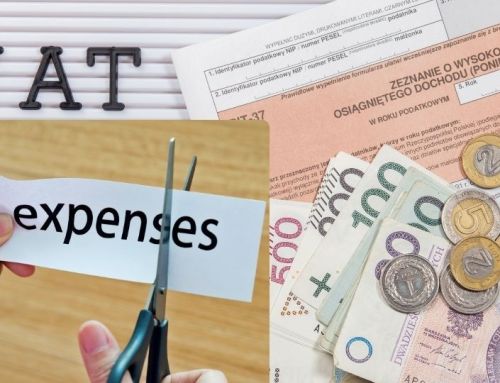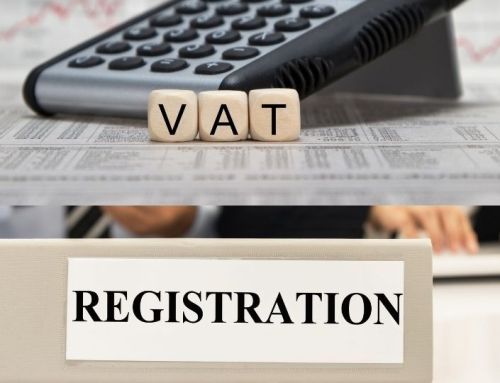VAT (Value Added Tax) is a key element of the UK’s tax system, and businesses registered for VAT are legally required to file VAT returns and make payments to HMRC (Her Majesty’s Revenue and Customs) on time. Failing to meet VAT deadlines can result in financial penalties, interest charges, and increased scrutiny from HMRC, which may lead to a VAT investigation or compliance audit.
Understanding the consequences of missed VAT deadlines and the steps to rectify late submissions is crucial for maintaining compliance and protecting your business from unnecessary financial liabilities. HMRC operates a structured penalty and surcharge system designed to encourage timely compliance while imposing increasing penalties for repeated late submissions and payments.
This article explores the impact of missing VAT deadlines, the penalties and interest charges imposed by HMRC, and the corrective actions businesses can take to resolve late VAT filings and payments. We also provide expert advice on improving VAT compliance to prevent future issues.
1. Importance of Meeting VAT Deadlines
VAT is charged on most goods and services sold in the UK, and businesses that are VAT-registered must account for this tax to HMRC by filing VAT returns and making payments within specific timeframes.
Key VAT Deadlines:
- Quarterly VAT Returns – Most businesses are required to file VAT returns every three months.
- Monthly VAT Returns – Some businesses, particularly those with high VAT liabilities, may be required to submit monthly returns.
- Annual VAT Returns – Businesses registered under the Annual Accounting Scheme file VAT returns once a year.
Standard VAT Return Deadlines:
- VAT returns must be filed within one calendar month and seven days after the end of the VAT accounting period.
- Payments must reach HMRC by the same deadline.
Example:
If a business’s VAT accounting period ends on 30 June, the VAT return and payment are due by 7 August.
Meeting these deadlines is essential to avoid penalties, interest charges, and compliance issues with HMRC.
2. What Happens If You Miss a VAT Deadline?
Missing a VAT deadline can result in immediate financial penalties and increased scrutiny from HMRC. The penalties and consequences depend on the type of deadline missed (return filing or payment), the frequency of late submissions, and the amount of VAT owed.
a: Late Filing of VAT Returns
If a business files its VAT return after the deadline, HMRC will issue a Surcharge Liability Notice (SLN). This notice places the business under a monitoring period of 12 months.
Consequences of late VAT return filing include:
- Surcharge liability on future late submissions.
- Increased financial penalties for repeated late filings.
- Potential VAT compliance checks or audits.
b: Late VAT Payments
It is a common Misconception on VAT payments that they do not affect business greatly if not paid on time. If there are late VAT Payments then HMRC will impose interest charges and surcharges. The severity of the penalties depends on the number of late payments within a 12-month period.
Late Payment Penalty Structure:
- First Late Payment – No immediate penalty (if within 15 days).
- 16–30 Days Late – A penalty of 2% of the outstanding VAT.
- More Than 30 Days Late – Additional penalty of 2% plus daily interest charges at the HMRC standard rate.
- Repeated Late Payments – Increased penalties and potential investigation by HMRC.
c: Interest Charges
HMRC charges interest on unpaid VAT from the due date until full payment is made. The interest rate is linked to the Bank of England base rate plus an additional 2.5%.
Interest is calculated daily and added to the total outstanding balance until the VAT debt is settled.
d: Surcharge Liability Notice (SLN)
A Surcharge Liability Notice is issued when a business misses a VAT deadline. The SLN triggers an enhanced monitoring period where future late submissions or payments will result in increased penalties.
If a business under an SLN misses another VAT deadline within 12 months, HMRC will apply a surcharge based on the following structure:
| Number of Offences | Surcharge Rate |
| 1st Late Submission (under SLN) | 2% of VAT due |
| 2nd Late Submission (under SLN) | 5% of VAT due |
| 3rd Late Submission (under SLN) | 10% of VAT due |
| 4th Late Submission (under SLN) | 15% of VAT due |
Are you facing difficulty in maintaining your VAT Deadlines? No need to worry Contact The Taxcom today for expert advice and services.

3. How to Resolve Missed VAT Deadlines
If you have missed a VAT deadline, taking immediate and strategic action can help reduce penalties and minimise the risk of further compliance issues with HMRC. HMRC expects businesses to act promptly when they realise that a VAT deadline has been missed. The sooner the issue is addressed, the better the chances of minimising financial penalties and avoiding further consequences such as interest charges, compliance audits, and enforcement action.
Resolving missed VAT deadlines involves several key steps, including filing overdue returns, arranging payment plans, negotiating with HMRC, and improving internal processes to prevent future issues. Below is a detailed guide on how businesses can effectively resolve missed VAT deadlines.
a: File the VAT Return Immediately
Even if you are unable to make a payment immediately, filing the overdue VAT return without delay is essential. HMRC imposes separate penalties for late filing and late payment, so filing the return promptly can help reduce the overall penalty burden.
Why Filing Quickly Matters:
- The late filing penalty increases with time.
- Filing the return reduces the risk of HMRC opening a compliance investigation.
- HMRC is more likely to negotiate payment terms if the return has been filed.
How to File an Overdue VAT Return:
- Log in to the HMRC online portal using your Government Gateway ID.
- Select the relevant VAT period for which the return is overdue.
- Enter the required details (sales, purchases, VAT collected, and VAT reclaimed).
- Ensure that all figures are accurate and match the business’s financial records.
- Submit the return and retain a confirmation receipt for record-keeping.
What Happens After Filing:
- HMRC will calculate any penalties and interest based on how late the filing is and the amount of VAT owed.
- If the VAT return shows that the business owes VAT, payment must be made immediately or negotiated through a Time to Pay arrangement.
- If the VAT return shows that the business is due a VAT refund, HMRC will process the refund (minus any penalties or interest owed).
b: Make a Partial or Full Payment
If the business is financially capable of paying the VAT owed, making a payment immediately reduces the overall penalty and interest burden. Even if the full amount cannot be paid, a partial payment demonstrates to HMRC that the business is acting in good faith and committed to resolving the issue.
Advantages of Making a Partial Payment:
- Reduces the outstanding VAT balance, which lowers daily interest charges.
- May reduce the severity of the penalty if HMRC views the business as cooperative.
- Increases the likelihood that HMRC will approve a payment plan for the remaining balance.
How to Make a Payment:
- Log in to the HMRC online portal.
- Select the outstanding VAT period.
- Choose a payment method:
- Direct Debit – Fast and secure payment directly from the business’s bank account.
- Bank Transfer (BACS or CHAPS) – Payment typically reflects within 24 hours.
- Debit or Credit Card – Processed through HMRC’s secure payment portal.
- Retain the payment confirmation for record-keeping.
What Happens After Payment:
- HMRC will update the business’s account to reflect the payment.
- Interest and penalties will be recalculated based on the reduced balance.
- If the payment fully settles the debt, HMRC will issue a confirmation of compliance.
c: Contact HMRC for a Time to Pay Arrangement
A Time to Pay (TTP) arrangement allows businesses to spread VAT payments over an extended period, typically up to 12 months. This option is particularly useful for businesses experiencing cash flow issues or temporary financial difficulties.
Benefits of a Time to Pay Agreement:
- Avoids further penalties and interest charges while the agreement is active.
- Prevents HMRC from initiating enforcement action (e.g., freezing accounts or seizing assets).
- Provides financial breathing room for the business to stabilise cash flow.
How to Apply for a TTP Agreement:
- Contact HMRC as soon as possible – ideally before the payment deadline or within 30 days of missing the deadline.
- Provide the following information:
- Total VAT liability.
- Reason for the payment delay.
- Business cash flow projections.
- Proposed repayment plan (weekly or monthly instalments).
- HMRC will review the proposal and either:
- Approve the plan and issue a written agreement.
- Modify the terms based on the business’s financial position.
- Reject the proposal if the repayment terms are deemed unrealistic.
Conditions of a TTP Agreement:
- The business must adhere to the agreed repayment schedule.
- All future VAT returns and payments must be submitted on time.
- If the business defaults on a payment, HMRC can terminate the agreement and pursue full repayment through enforcement action.
Example:
- Outstanding VAT debt = £15,000
- TTP arrangement = £1,250 per month for 12 months
- No further penalties imposed if the business adheres to the terms.
Tip: Keep clear records of communications with HMRC and payment confirmations to avoid disputes.
d: Appeal a Surcharge or Penalty
If the business believes that a VAT surcharge or penalty was imposed unfairly, it has the right to appeal to HMRC.
Grounds for Appeal:
- HMRC error in calculating the penalty or interest charges.
- Technical issues with HMRC’s online filing system.
- Delays caused by circumstances beyond the business’s control (e.g., illness, postal delays).
- Errors in VAT return figures due to third-party accounting mistakes.
How to Appeal:
- Submit a formal appeal through the HMRC online portal or in writing.
- Include supporting documentation, such as:
- Bank records showing payment attempts.
- Correspondence with HMRC regarding technical issues.
- Proof of reasonable excuse (e.g., medical certificates, evidence of system failure).
- HMRC will review the case and issue a decision within 30 days.
Outcomes of an Appeal:
- Penalty waived – If HMRC accepts the appeal, the penalty will be cancelled.
- Reduced penalty – HMRC may reduce the penalty if they find mitigating circumstances.
- Rejection – If the appeal is denied, the business can escalate the case to the First-Tier Tribunal (Tax Chamber) for an independent review.
e: Request a Review or Alternative Dispute Resolution (ADR)
If HMRC rejects the appeal, businesses have the right to request a review or pursue Alternative Dispute Resolution (ADR).
Review Process:
- A senior HMRC officer (who was not involved in the original decision) will review the case.
- The business can provide additional evidence or clarification during the review.
- The review outcome will be issued within 45 days.
Alternative Dispute Resolution:
- ADR involves a neutral third party who facilitates communication between the business and HMRC.
- The goal is to reach a mutually acceptable agreement without the need for a tribunal hearing.
- ADR is typically quicker and less costly than a formal tribunal process.
f: Prevent Future VAT Filing and Payment Issues
After resolving a missed VAT deadline, businesses should take proactive steps to prevent future issues:
- Set up automated VAT return reminders using accounting software.
- Use direct debit for VAT payments to avoid missed deadlines.
- Conduct internal VAT audits to ensure accuracy and compliance.
- Work with a VAT specialist or tax advisor to identify potential risks and errors.
- Maintain clear and organised records of sales, purchases, and VAT returns.
The procedure for managing VAT Deadlines can be troublesome. We suggest that you let us handle such tasks for you. Contact The Taxcom today for expert advice and services.
4. How to Avoid Missing VAT Deadlines
Proactive measures can help businesses avoid VAT compliance issues and late submission penalties.
a: Set Up Automated Reminders
- Use accounting software to automate VAT reminders and payment notifications.
- Schedule internal reviews before each filing deadline.
b: Improve Cash Flow Management
- Monitor cash flow to ensure funds are available for VAT payments.
- Consider setting aside VAT funds in a separate business account.
c: Use Direct Debit for VAT Payments
- Setting up a direct debit ensures that VAT payments are made automatically before the deadline.
- Direct debit reduces the risk of late payment penalties.
d: Work with a VAT Specialist
- Engage a VAT specialist or accountant to manage VAT compliance.
- Regularly review VAT records and returns to identify potential errors.
5. Frequently Asked Questions (FAQs)
Q1: What are the penalties for missing VAT deadlines?
HMRC applies a structured penalty system for missed VAT deadlines. The severity of the penalty depends on how late the payment or filing is and the business’s compliance history.
- First Offence: If a business misses a VAT deadline for the first time and pays within 15 days, no penalty is applied.
- 16–30 Days Late: A penalty of 2% of the outstanding VAT will be charged.
- More Than 30 Days Late: A penalty of 2% is charged on the outstanding VAT, plus a daily interest rate at the HMRC standard rate (Bank of England base rate + 2.5%).
- Repeated Late Payments: If the business has already received a Surcharge Liability Notice (SLN) and continues to miss deadlines, penalties increase progressively:
- Second offence – 5% of the outstanding VAT.
- Third offence – 10% of the outstanding VAT.
- Fourth offence – 15% of the outstanding VAT.
Q2: Can I get an extension for VAT payments?
Yes, HMRC allows businesses to apply for a Time to Pay (TTP) arrangement if they are struggling to meet their VAT payment obligations. Under a TTP agreement, businesses can:
- Spread VAT payments over an agreed period (usually between 3 to 12 months).
- Avoid further penalties and surcharges as long as the terms of the agreement are met.
- Avoid enforcement action (e.g., seizure of assets or freezing of bank accounts).
Q3: Will late VAT submissions trigger a VAT investigation?
Yes, repeated late VAT submissions can increase the risk of a VAT investigation by HMRC.
- If a business consistently files VAT returns late or underpaid VAT, HMRC may suspect non-compliance or fraudulent activity.
- A VAT investigation involves a detailed examination of the business’s financial records, including:
- Sales invoices and purchase records.
- Bank statements.
- VAT calculations and supporting documentation.
- If HMRC identifies discrepancies or evidence of underreporting, the business could face additional penalties, increased scrutiny, or legal action.
Q4: Can I appeal a VAT penalty?
Yes, businesses have the right to appeal a VAT penalty if they believe it was issued unfairly or due to an administrative error.
- Appeals must be submitted to HMRC within 30 days of the penalty notice being issued.
- Grounds for appeal include:
- Errors in HMRC’s assessment of VAT owed.
- Late filing or payment due to exceptional circumstances (e.g., natural disasters, illness, or technical issues).
- Discrepancies caused by miscommunication from HMRC.
- Financial hardship prevents the business from meeting payment deadlines.
Q6: Can HMRC take enforcement action for late VAT payments?
Yes, if a business fails to meet its VAT payment obligations, HMRC can take enforcement action to recover the outstanding amount. Enforcement actions include:
- Freezing Bank Accounts:
- HMRC can issue a Direct Recovery of Debts (DRD) notice to the business’s bank, freezing funds until the debt is settled.
- Seizing Business Assets:
- HMRC has the authority to seize and sell business assets to cover unpaid VAT.
- This includes office equipment, company vehicles, and stock.
- Winding-Up Petition:
- If the debt remains unpaid, HMRC can issue a winding-up petition in court, forcing the business into liquidation.
- Court Action and Legal Penalties:
- HMRC can seek a court order requiring the business to pay the debt.
- Failure to comply with a court order can lead to fines and additional legal consequences.
- Director’s Liability:
- If a business is unable to meet VAT debts, HMRC may hold company directors personally liable for unpaid taxes under certain circumstances (e.g., evidence of fraud or reckless mismanagement).
Q7: What if my business cannot afford to pay the VAT owed?
If a business cannot afford to pay VAT in full, they should contact HMRC immediately to avoid additional penalties.*-
- HMRC may agree to a Time to Pay (TTP) arrangement allowing the business to spread payments over time.
- If the business is facing financial hardship, HMRC may agree to temporarily suspend enforcement action.
- Ignoring the debt or failing to communicate with HMRC increases the likelihood of enforcement action.
Resolve VAT Disputes Efficiently with The Taxcom’s Expertise
Facing a VAT Deadline issue? Don’t navigate it alone. Contact The Taxcom today for expert advice and professional representation. Our VAT investigations specialists and vat fraud investigation lawyers are here to help you handle deadlines efficiently and safeguard your business. Get in touch now and experience the difference expert support can make.
Table of Content

Our Content Writing Team boasts a proven track record of crafting engaging and impactful content that drives success and achieves results.







